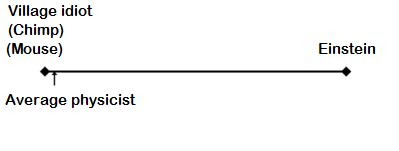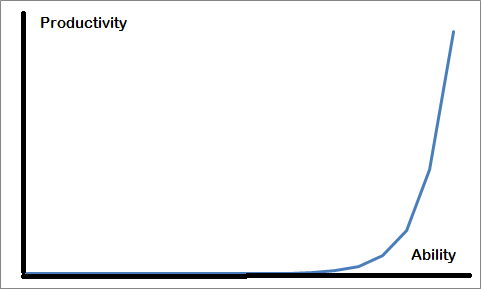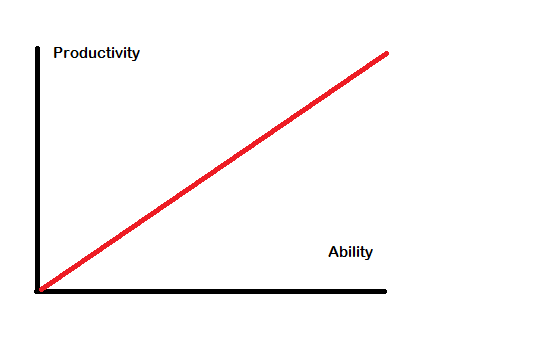I argued in this post that the differences in capability between different researchers are vast (Kaj Sotala provided me with some interesting empirical evidence that backs up this claim). Einstein's contributions to physics or John von Neumann's contributions to mathematics (and a number of other disciplines) are arguably at least hundreds of times greater than that of an average physicist or mathematician.
At the same time, Yudkowsky argues that "in the space of brain designs" the difference between the village idiot and Einstein is tiny. Their brains are extremely similar, with the exception of some "minor genetic tweaks". Hence we get the following picture:




While I do like that visualization a lot, I think it is misleading in some ways. It is trivial to add to the sum of human knowledge. Go and count the coins in your wallet. I don't know how many are in mine so I'll go and check. Okay, there are 18 coins in my wallet. Now we know something we didn't know before.
"Oh, but that's not knowledge, that's just data - and just one datum at that. By 'knowledge' we mean stuff you can get published in research papers - something containing analysis and requiring insight." Bah, I tell you. You totally could get a coins-in-wallet study peer-reviewed and published. You just have to look in more wallets. Imagine you gathered a sample from 100 people in your city. Take 100 people from another city. Add cities in other countries. Do it all again in a year. Keep doing it for 10 more years. Now you have lots of data. Go and write your paper. It won't require any insight or genius - it will practically write itself. Just present your data in some legible way with nice graphs and you will find someone interested enough to publish it. Maybe not a top journal but definitely a legitimate journal in a relevant field.
The boundary of knowledge isn't hard and doesn't require years until you come up with some "breakthrough". You can just start right away, collecting information no-one currently has.
Or if you'd like to define 'human knowledge' so restrictively that the coins-in-wallet study wouldn't count, then the average PhD won't count either. Look at this zombie. Isn’t it racist and sexist? Yes, it is.